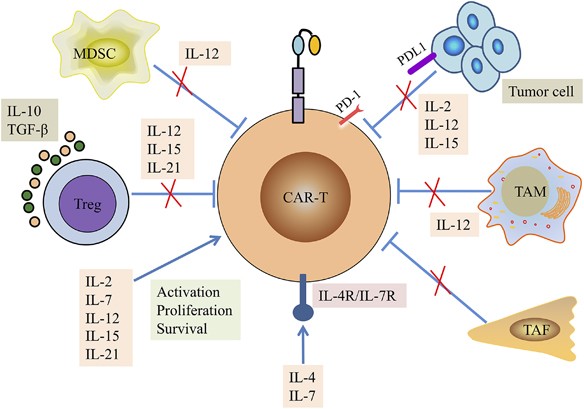
- Select a language for the TTS:
- UK English Female
- UK English Male
- US English Female
- US English Male
- Australian Female
- Australian Male
- Language selected: (auto detect) - EN
Play all audios:
Now they can both rest in peace. An NYPD detective known as the “Italian Sherlock Holmes” more than a century ago was finally given a marked grave in Brooklyn’s Green-Wood Cemetery on
Tuesday — a year after his hero partner, who was slain chasing a robber, got a headstone, too. Detective Joseph Pucciano, who died in 1928 of tuberculosis, now has a gravestone in the
historic cemetery alongside Detective Bernardino Grottano — his cousin by marriage and a fellow member of the NYPD’s former Italian Squad that investigated the Mafia. Grottano was killed
during a cigar-store hold-up in 1924. Both Grottano and Pucciano had been buried in a private lot with six graves containing the remains of about 30 people, but their plots went unmarked —
until a combination of family research and support from the Detectives’ Endowment Association changed that. EXPLORE MORE Grottano — whose widow was reportedly too poor to buy a marker when
he died — received his headstone last year. It’s unclear why Pucciano’s grave went unmarked for so long, but he finally received his headstone Tuesday. As about two dozen family members
including children, looked on – some wearing NYPD blue – a pair of cops ceremoniously removed a royal blue cloth covering the brand-new marker over Pucciano’s plot. The headstone was
engraved with the words, “Joseph L. Pucciano, Fidelis Ad Mortem, End of Watch July 16, 1928,” alongside a portrait of the detective and the Detectives Endowment Association shield. “I think
it’s a wonderful thing to get this detective a headstone so his grandchildren and maybe their grandchildren can have a place to remember him,” DEA President Scott Munro said. “It’s all
about taking care of our detectives.” Pucciano had “a highly successful law enforcement career taking down ruthless mobsters, criminal gangs” and “locked up at least 40 killers,” many of
whom wound up in the electric chair, Munro said. “He was a tough, seasoned, smart, savvy investigator, and he was dubbed by the press, the Master Detective, the Italian Sherlock Holmes,”
the union head said. “The DEA felt strongly that our detective deserves to be recognized in death as he was in life.” The cemetery situation involving Pucciano and Grottano didn’t come to
light till retired NYPD Detective William Markowski, 65, hit a wall researching his own family history and then started digging into that of his fiancee, Phyllis Kropacek, he said. The
couple realized that Kropacek’s great-great uncle, Grottano, was buried in the famed cemetery — but without a marker. Grottano was off-duty in downtown Brooklyn the night of May 19, 1924,
when a robber ran past him with a uniformed cop in pursuit after ripping off a shop at Flatbush Avenue and Fulton Street. Grottano joined the patrolman in the chase, and the suspect opened
fire on the officers, prompting them to return fire. Grottano was struck in the chest and fell to the ground, while the patrolman was hit in the arm but survived. “The 26-year-old
perpetrator was also felled during the volley and died at the scene,” according to the Detectives Endowment Association website. “He had a long rap sheet that included grand larceny and
drugs.” At the time, Grottano’s widow, Mary, was juggling hospital bills and had two children to raise alone, so she couldn’t afford a headstone, according to newspaper stories from the
time. Markowski reached out to the Detectives Endowment Association, and the union offered to help pay for the marker. Grottano’s grave received its long-awaited headstone about a year ago,
leaving only Pucciano’s plot still needing its proper endowment, which it got Tuesday. “They were partners for a short time, but now they’re together forever,” Kropacek said. Grottano’s
wife and Pucciano were first cousins – and the two men grew even closer through their partnership in the Italian Squad. “At that time in the Police Department, there weren’t a lot of
Italian cops,” Markowski said. “When their careers started, both of them were very young, like 23, 24 years old.” At the time, the NYPD was made up of mostly Irish-Americans. “ They
couldn’t speak to the Italian people that were getting robbed,” he said of most of the officers at the time. “That’s why the ‘Black Hand,’ or the Mafia, took advantage of so many Italian
Americans at the time, because even when they wanted to tell the police, the police would just shoo them off because they wouldn’t understand what they were talking about.” Through
investigating Grottano and Pucciano’s storied and heroic NYPD past, Kropacek said she has now connected with a whole new side of her family. “ They’re so happy, really, both families.
Really, it’s is very, very nice,” Kropacek said. “There are pictures. I know people in my family that look like Bernardino. I’m like, ‘Oh My God!’ ”







